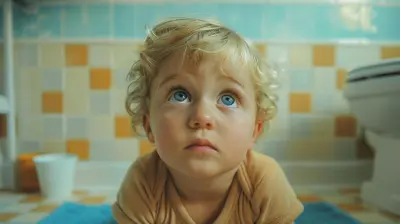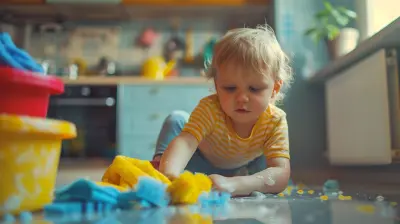Baby Wearable Technology: Can it Really Improve Sleep?
12 October 2025
Let’s be real for a second—being a parent is kind of like being a night-shift worker who never clocks out. You’re up feeding, changing diapers, checking if they’re breathing (yes, again), and let’s not even start on the sleep deprivation. Enter baby wearable technology: a gadget-infused promise to help your little one sleep better—and maybe, just maybe, help you get a few solid hours too.
But wait. Can strapping a tiny monitor to your baby actually lead to better sleep? Or is it just another flashy piece of tech preying on desperate, sleep-deprived moms and dads? Let’s dig into the truth, the myths, and the maybe-so’s. Prepare for some real talk.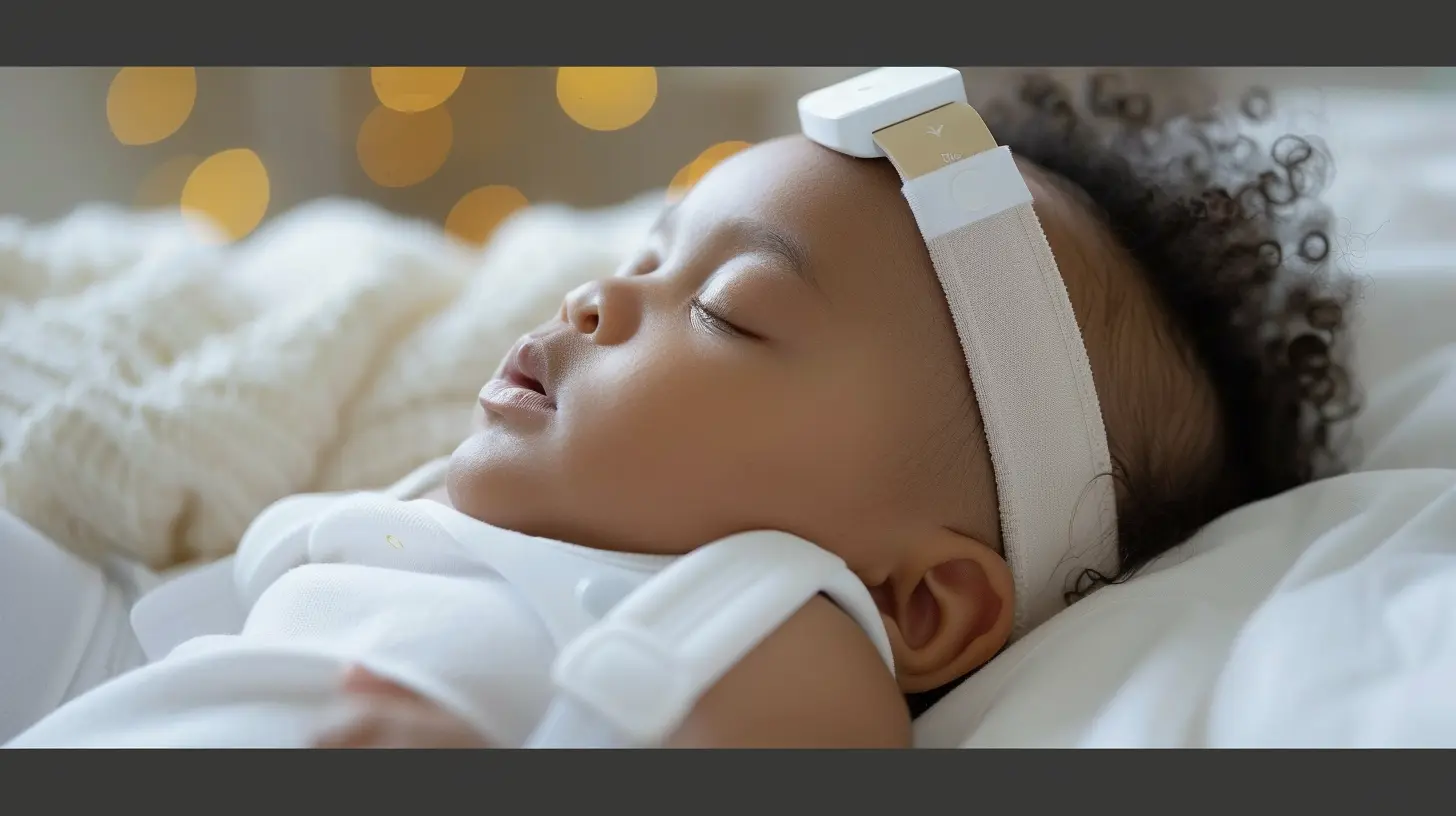
What Is Baby Wearable Technology Anyway?
If you’re picturing a baby in a smartwatch, you’re not entirely off. Baby wearable technology includes smart socks, onesies, bands, and other tiny wearables packed with sensors. They claim to monitor your baby’s:- Heart rate
- Oxygen levels
- Sleeping position
- Sleep patterns
- Movement
- Temperature
Most of these devices sync up with your phone through Bluetooth or Wi-Fi, sending you alerts, daily logs, and sleepy-time analytics. It's like your little one has a personal sleep coach—and you’re getting the play-by-play on your phone.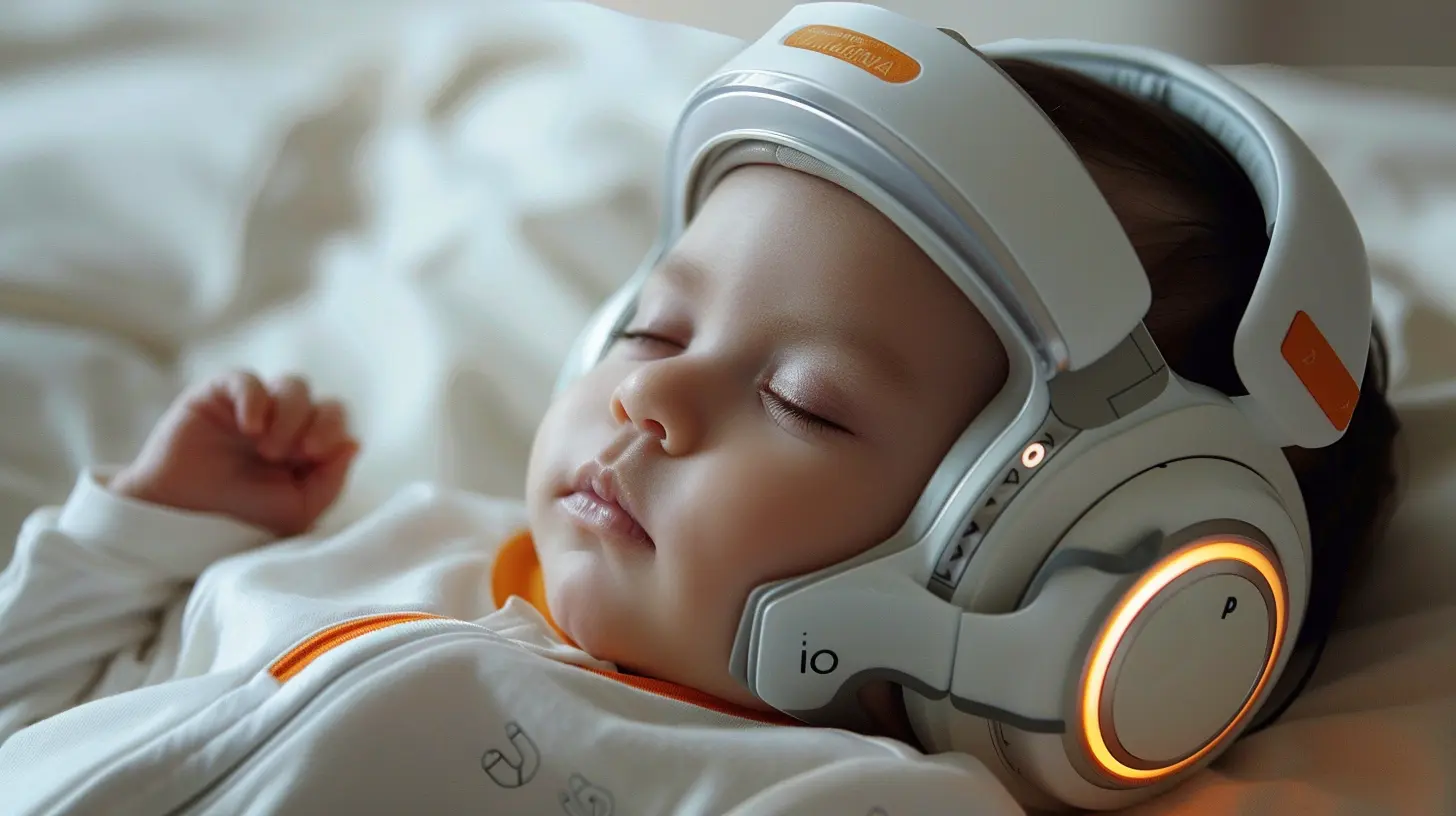
The Big Promise: Better Sleep for Baby (and YOU)
Let’s not sugarcoat it. These devices are marketed toward exhausted parents like a shot of espresso at 2 AM. The flashy pitch? “Track your baby’s sleep and improve it with smart insights!”Sounds dreamy, right? But how does tracking turn into better sleep?
Here’s the logic:
1. Data leads to patterns. When you know how your baby sleeps, you can spot trends (like they struggle to fall back asleep at 3 AM every night).
2. Patterns lead to solutions. You tweak feeding times, adjust naps, or even change bedtime routines.
3. Solutions lead to better sleep. At least in theory.
But again, this is all assuming that data = action = restful nights.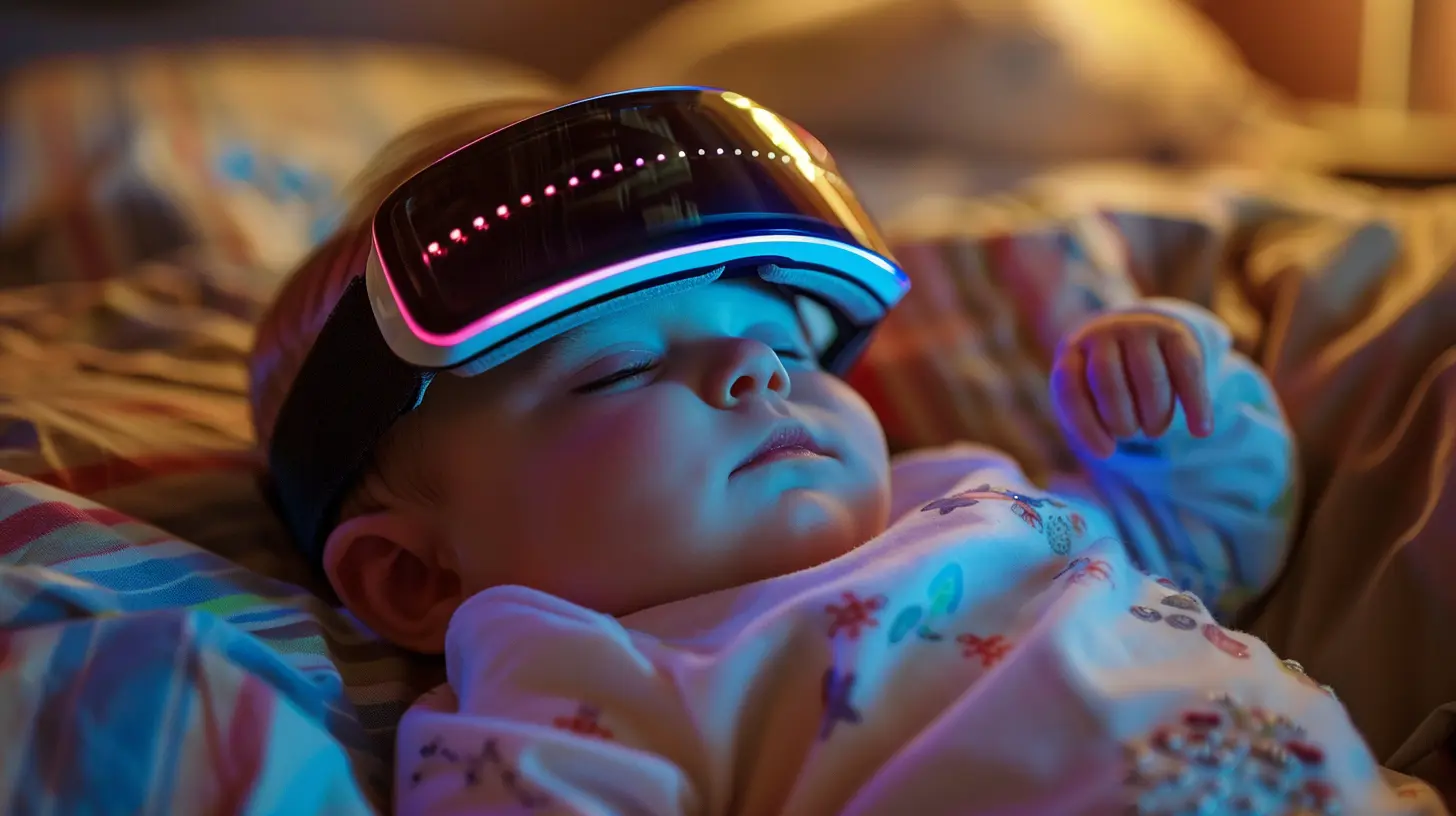
Let’s Talk Science: Does the Research Back It Up?
Ah yes, the million-dollar question. Is there actual proof that baby wearables make a difference?Here’s the honest scoop: most pediatricians and sleep experts say the technology is promising—but not proven.
Why? Because:
- Clinical trials are limited. There’s not enough high-quality, long-term research to say for sure.
- Baby sleep is complex. Many factors (teething, growth spurts, illness, developmental stages) affect sleep that no gadget can fully account for.
- Parental behavior matters. You can’t just slap on a sock and expect miracles. It's what you do with the data that counts.
So, are wearables the magical sleep wand? Not exactly. But are they complete garbage? Also no. They sit somewhere in the gray zone—helpful, but not holy grail status.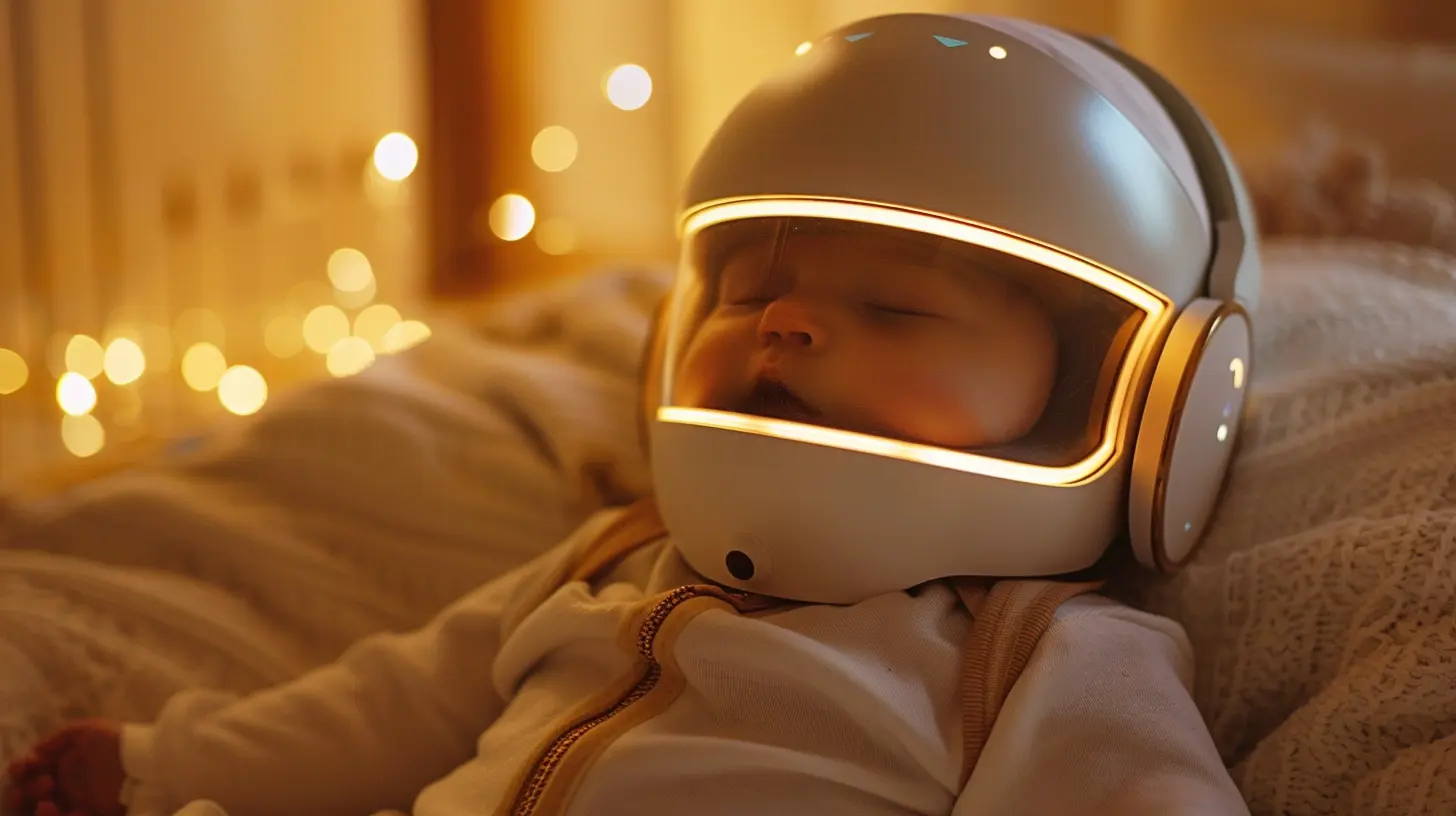
The Pros: Where Baby Wearables Truly Shine
Let’s give credit where it's due. These devices can be genuinely helpful. Here’s how:1. Peace of Mind
Many baby wearables monitor vitals like oxygen levels and heart rate—pretty reassuring for new parents who lie awake wondering, “Is my baby still breathing?” (We’ve all been there.)If you're a parent dealing with anxiety, these gadgets can bring a sense of comfort that helps you sleep better too.
2. Early Detection of Issues
Some devices alert you if your baby rolls onto their tummy (a known SIDS risk), or if their oxygen dips suddenly. This kind of insight could be life-saving when acted upon quickly.3. Routine Tracking
Wearables can show when your baby naturally starts getting drowsy, allowing you to align bedtime with their sleep-wake cycle. That’s way more useful than trying to guess when they “seem tired.”4. Idea-Packed Apps
Many of these tech tools come with companion apps full of sleep tips, expert Q&As, and charts to understand milestones. It's like having a sleep consultant in your pocket (minus the $500 price tag).The Cons: When It Might Be More Trouble Than It’s Worth
Okay, time for some tough love. Baby wearables aren’t all sunshine and sleepy unicorns. There are real downsides, too.1. False Alarms = More Panic
Ever been woken by a midnight alert only to find your baby just fine? Yeah, that can happen. False alarms due to movement or poor sensor contact can leave you more anxious—not less.2. Parental Overwhelm
More data isn’t always better. Some parents spiral down the rabbit hole of charts and graphs, obsessing over what it all means. Sometimes, it’s just noise.3. Cost
Let’s not gloss over this—these devices aren’t cheap. Some run $300 or more, and that’s not including subscription app fees. If you’re on a budget, this isn’t exactly a no-brainer expense.4. Not FDA-Approved
Many wearables claim to track health indicators but aren’t regulated medical devices. For babies with health conditions (like apnea or low oxygen), a hospital-grade monitor is still the gold standard.Common Baby Wearables and What They Actually Do
Let’s break down a few you’ll probably run into:Owlet Smart Sock
- Tracks heart rate, oxygen levels, and sleep- Sends alerts via app
- Peace of mind? Yup. Medical device? Nope.
Nanit Wearable Band + Camera
- Tracks movement and sleep patterns via overhead camera- Sleep coaching and tips
- Better for monitoring sleep behavior than vitals
Miku Pro Smart Monitor
- Contactless tracking with real-time breathing monitoring- High-res video streaming
- Great if your kid hates wearing anything
Hatch Rest+ Sound Machine
- Not wearable, but often paired with sleep tech- Helps with routines through sound, light, and routines
Each has its strengths, but none are a cure-all. Think of them as tools—not miracle-makers.
How to Actually Use Baby Wearables to Improve Sleep
So you bought the high-tech gear, synced the app, and now what?Here’s how to get actual value from that investment:
💤 Use Data to Adjust Routines
If you notice your baby sleeps better after earlier feedings or in a certain sleep position (safe ones only!), you can tweak their schedule accordingly.💤 Watch for Red Flags
If your wearable shows consistent drops in oxygen or irregular rhythms, it’s worth talking to your pediatrician—even if your baby seems fine.💤 Avoid Obsession
Use wearables as a guide, not gospel. Don’t let every hiccup send you spiraling. Look at the big picture, not just the blips.💤 Create a Solid Sleep Environment
No gadget will work if your baby's room is too noisy, bright, cold, or hot. Think of tech as the cherry on top of a well-crafted routine.Should You Buy One? Let’s Cut to the Chase.
Ultimately, it boils down to one question: Does it help you sleep better—mentally or physically?If a wearable helps you feel more confident and gives you insights that lead to better nights, awesome. But if it’s driving you nuts, draining your wallet, and offering little value, it’s 100% okay to skip it.
You don’t need a wearable to be a great parent. Thousands of babies grow up just fine without being monitored 24/7 through an app. Trust your gut, talk to your pediatrician, and focus on the stuff that really matters—like cuddles, love, and establishing healthy routines.
Final Take: Is Baby Wearable Tech Worth It?
Here’s the raw truth: baby wearable technology isn’t magic—but it isn’t junk either. It can be helpful, especially for anxious parents or those struggling to decode their baby’s sleep. But it’s not a guaranteed path to eight-hour nights and stress-free parenting.Use it wisely. Don’t rely on it blindly. And for the love of sleep, don’t let it replace your intuition.
Because at the end of the day, you know your baby better than any sensor ever will.
all images in this post were generated using AI tools
Category:
Baby SleepAuthor:

Maya Underwood
Discussion
rate this article
1 comments
Zander Rodriguez
This article effectively highlights the potential benefits of baby wearable technology in enhancing sleep quality. By analyzing various devices' features and parental feedback, it underscores the importance of monitoring sleep patterns. However, it's essential to balance tech use with traditional caregiving practices to foster a holistic sleep environment for infants.
October 17, 2025 at 3:38 PM

Maya Underwood
Thank you for your insightful comment! I completely agree that while baby wearable technology can enhance sleep monitoring, it's crucial to integrate it with traditional caregiving for a well-rounded approach to infant sleep.

